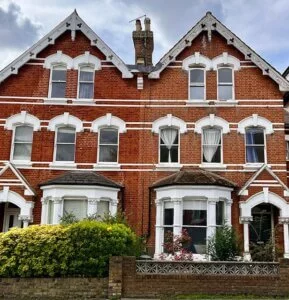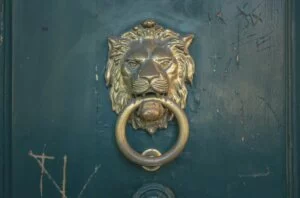Gifting Property to Children

Contact
Table of Contents
Can I gift property to my children?
Gifting a property to your adult children is a relatively complex transaction but it can have a number of benefits. On this page, our estate planning lawyers look at why people choose to transfer ownership of property from a parent to a child, how to go about it and examine the risks and tax implications you might face along the way.
Why is gifting property to children so popular?
In some cases, transferring your property to your children during your lifetime is the best way to pass on wealth and make sure that your heirs are adequately provided for. It can also be a useful way of reducing Inheritance Tax (IHT) or protecting the property from a future sale to fund care home costs.
These benefits do not happen automatically, however. You will need a solicitor to help you structure the gift properly and ensure that it is the right choice for you.
Is it better to gift or inherit property?
When you die, your estate will be liable for Inheritance Tax. IHT is charged at 40% of the estate’s value exceeding £325,000. The threshold rises to £500,000 if:
- The estate includes your main home
- Your children will inherit the home, and
- The total value of the estate is less than £2 million
Married couples and civil partners can combine their allowances to a total of £650,000 (or £1 million with a main home) worth of assets to be passed on after their deaths.
For most people, their home is their biggest asset. If the property’s value means going over the IHT threshold, then you may consider gifting the property during your lifetime, rather than leaving it to your children in your will. This will avoid or reduce the IHT bill in many cases, although care must be taken as the rules are complex. Speak to our inheritance tax planning solicitors for advice.
What are the tax implications for property gifts?
There are three taxes to consider when you give your property away during your lifetime: Inheritance Tax, Capital Gains Tax and Stamp Duty Land Tax.
Inheritance tax
The gift will ONLY be exempt from IHT if you survive seven years from the date of the gift. If you pass away within three years, then the full 40% IHT will be payable on the property’s value. Survive more than three but less than seven years, and the IHT rate tapers on a sliding scale.
Gift with a reservation of benefit
There are some exceptions to this rule. If you retain an interest in the property – for example, you continue to live in the home rent-free – then you are making a “Gift With a Reservation of Benefit.” HMRC will not recognise a gift with a reservation of benefit and the property will be included in the estate when calculating the IHT bill.
For a gift to be treated as a genuine gift, you must leave your home forever (as if you had sold it) or pay market rent (in which case your child will have to pay income tax on the rent they receive). For many families, the gift is less appealing when you take the tax consequences into account. It’s important to ask your solicitor whether such an arrangement would suit your individual circumstances.
Capital Gains Tax
If you give away your main home to your children, there should be no capital gains tax to pay. However, if you give away a second home or rental property, then capital gains tax will be payable on any profit arising at the time of the gift. HMRC will look at the market value of the property when the gift is made. If this is higher than when you bought the property, you will pay CGT on the uplift at 18% or 24%, depending on your income for that tax year.
If you have not already used your annual CGT exemption, the first £3,000 of gain is tax-free.
Stamp Duty Land Tax
Stamp duty should not be payable if it’s a genuine gift and no money changes hands. However, it may be payable if there is a mortgage or some other attached to the property, or a price is paid. These are complicated transactions. Your solicitor can advise you on the implications and whether Stamp Duty Land Tax should be paid or not.
What is the legal process to gift property to your family?
The Land Registry will require several forms to be completed. They can be complicated if you are not a solicitor or conveyancer. We recommend seeking expert legal advice to ensure your gift is legally watertight.
What are the risks of gifting property?
The main risks are as follows:
- Once the gift has been completed, you will no longer own your home. The risk here is that you may regret making the gift if you need to access cash in the future.
- Gifts are not reversible. Unlike a will, which you can change at any time, the deed of gift is immediate and binding.
- If you intend to live in the property, you may lose your home if your child, who is now the owner, is declared bankrupt or if they want you to leave because they wish to sell the property.
Can I gift my house to avoid care costs?
Many people consider gifting property to protect their home from being sold to fund care home costs. However, if there is evidence that you have gifted your home to your children specifically to avoid care home fees, then the property’s value can still be included in the local authority’s needs assessment. Speak to a solicitor before proceeding if this is a concern.
Can a gifted property be protected in a divorce?
There are steps that you can take to protect a gifted property in the event of a divorce. Prenuptial agreements can be used to protect gifts from division in divorce proceedings. See our page on prenuptial agreements for the pros and cons.
Can you gift property with a mortgage?
It’s not recommended that you attempt to give away a property with a mortgage. The mortgage lender will require you to pay off the mortgage before the ownership transfers. Therefore, the transaction must be a genuine sale and purchase at a price that covers the balance of the loan.
If you wish to transfer ownership and keep the mortgage in place, then you must seek consent from the lender. The lender will review your child’s ability to pay the mortgage just like they would with any mortgage applicant, and they may not be eligible for the type of mortgage you currently have or any mortgage at all. This can be a lengthy and complex process, so it is important to seek legal advice.
Can you gift property for less than the market value?
Parents can gift a property to their child or children for the full value, less than market value or for no consideration at all. Each option has its own risks and tax implications. A solicitor can help you decide which is best for you and your family.
What are the alternatives to property gifting with a deed of gift
There are various alternatives to a deed of gift if giving away your property is not the best option for you. The main alternative is a transfer of equity, where you stay on the legal title as the original owner, and the child or children are added as additional owners.
Transfer of equity can be a tricky process to get right – especially if there is a mortgage. There will be different tax considerations, too.
How we can help
Speak to your solicitor for more information and advice about the best option for your circumstances.
To speak with one of our solicitors, contact us by:
- Filling in our online enquiry form; or
- Calling us on 020 7485 8811
Also see:
Share this article
Estate Planning News & InsightsVIEW ALL
- 23.10.2024
Buying and Selling Homes in Hampstead Garden Suburb
Buying a house in Hampstead Garden Suburb While character, green spaces and the best of domestic architecture are big draws...
Read more - 12.8.2024
Buying a Second Home
Buying a second home is an exciting step, but it comes with several considerations, including understanding the rules for buying...
Read more - 19.5.2023
Declaration of Trust for Property
If you are buying a property jointly, you may want to consider making a declaration of trust to record your...
Read more - 13.2.2023
Transfer of Equity Stamp Duty
Do I pay Stamp Duty Land Tax when transferring Property into my partner’s name? When it comes to property...
Read more - 13.2.2023
Shared Ownership Stamp Duty
Do you pay stamp duty on shared ownership? When you buy a new shared ownership property, you are given two...
Read more - 8.2.2023
Severance of a Joint Tenancy
Severing a Joint Tenancy Normally, when couples buy a property together they do so as joint tenants. This means they...
Read more - 8.2.2023
Tenants in Common vs Joint Tenants
Tenants in Common vs Joint Tenants: Which is best for buying a property together? When buying a property with someone...
Read more - 20.1.2023
Stamp duty tax to remain the same until 2025
Good news for buyers as the current SDLT rates will remain until 2025 Buyers looking to purchase this year will be...
Read more - 23.9.2022
First-time buyer stamp duty exemption
Stamp duty is the bane of every home buyer, with only first-time buyers being exempt from paying the tax if...
Read more - 30.8.2022
What is a transfer of equity?
Transfer of equity in divorce Transfer of equity refers to the process of transferring part or all of a property...
Read more - 26.6.2021
The Risks Of Buying Properties Off Plan!
Buying Property Off Plan The Daily Mail reported that 300 families a week have to move into shoddy newly built homes....
Read more - 30.1.2021
Making Alterations to a Leasehold Property
What is a Leasehold Property? There are two main types of property in England and Wales, freehold and leasehold property....
Read more - 5.1.2021
How to Sell Your House Quickly
10 tips for a fast house sale Thinking about marketing your property for sale? Simon Nosworthy, Conveyancing Solicitor at Osbornes, sets...
Read more - 22.5.2019
What Is Equity Release?
Equity release is a type of financial product available to homeowners which allows them to access some of the equity...
Read more - 25.3.2019
London property ‘hotspots’
Property professionals across the country have made their predictions as to what is in store for the property market over...
Read more




















